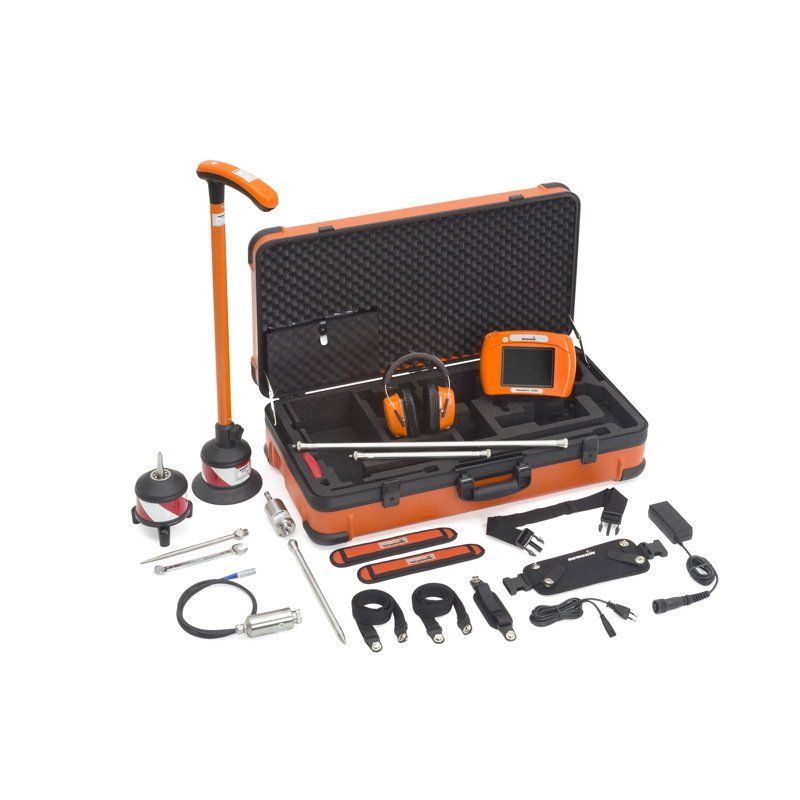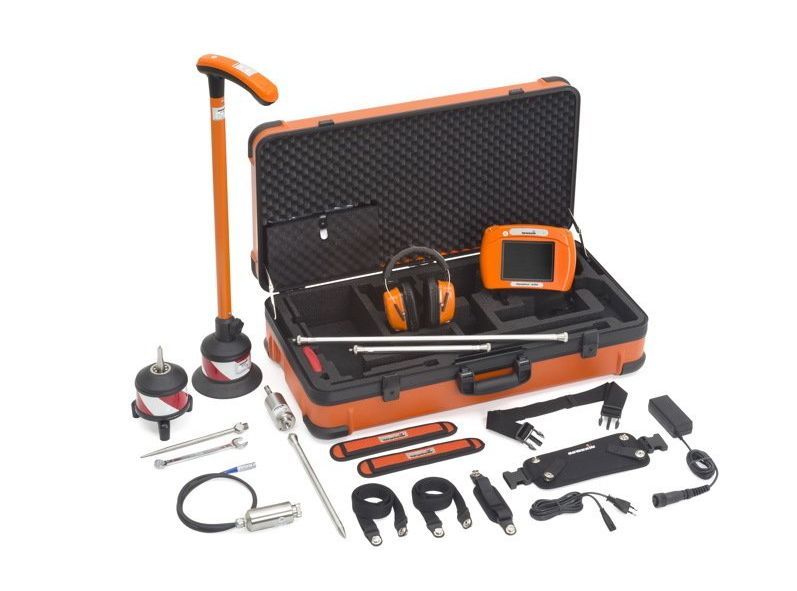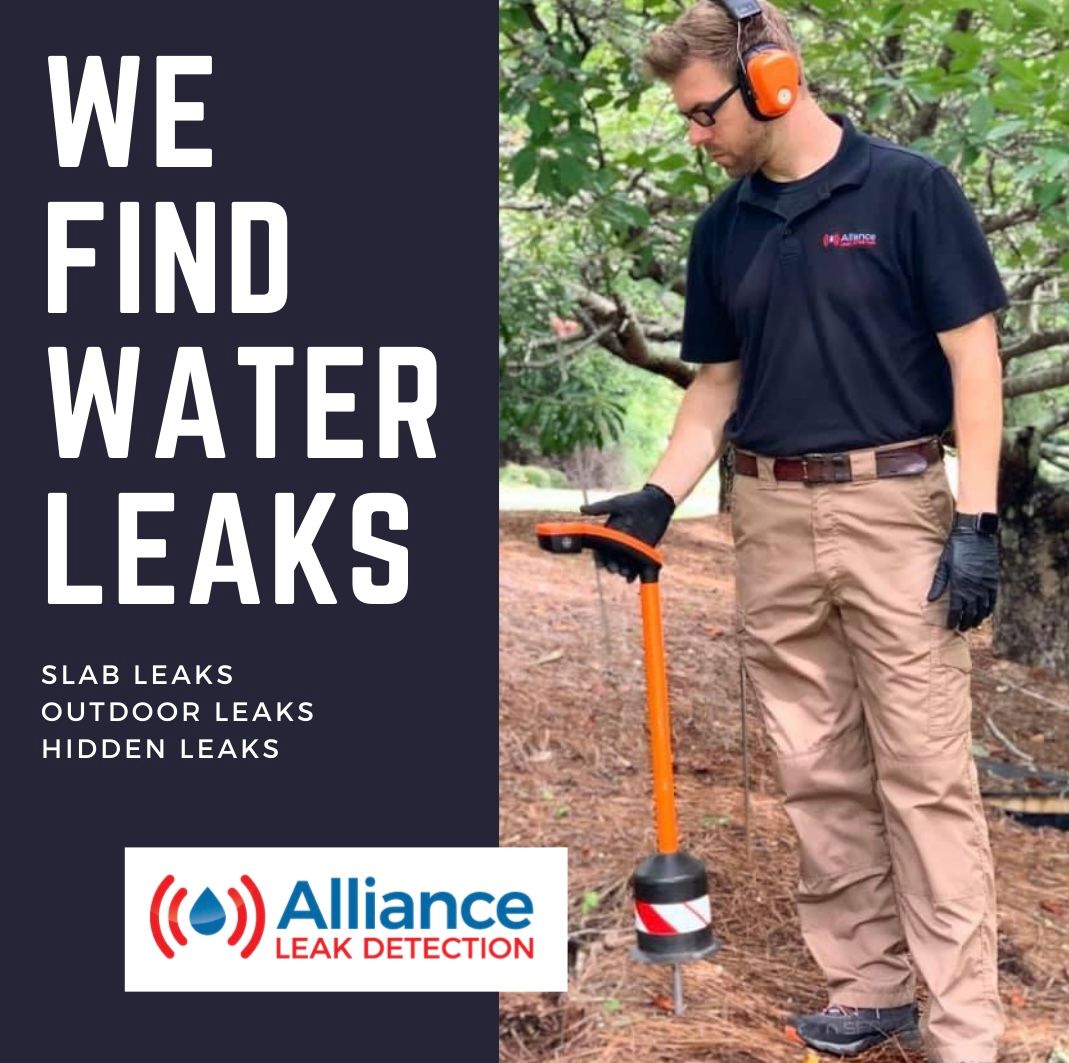What is a Slab Leak?
Slab leaks are water leaks related to the plumbing system that develop beneath or within the concrete foundation of a structure. Most commonly, these leaks are the result of a damaged water pipe. Several factors contribute to pipe breakage within the slab, including issues with water pressure, aging pipes, soil movement, and sometimes improper installation. Detecting and repairing slab leaks can be a challenging task, and if left unattended, they can cause significant damage to properties and lead to excessive water wastage.
At Alliance Leak Detection, we employ advanced non-invasive leak detection equipment and training. This allows our technicians to locate slab leaks even when water is not visibly present. Schedule your slab leak detection service with Alliance Leak Detection in Peachtree City, Ga, today!
Signs of a slab leak.
Slab leaks often occur suddenly, but due to their concealed nature, they can be difficult to detect. When a pipe breaks or starts leaking under a slab, water can follow various paths. It might slowly permeate the entire slab until it flows out from the sides or seeps into the property. Alternatively, water might begin seeping into the building immediately.
At Alliance Leak Detection, we specialize in identifying slab leaks and recognizing the warning signs is crucial to prevent potential property damage. Here are some indications that a slab leak may be present:
High water bill.
Clients often notice an unexpected increase in their water bills as the first indication of a possible leak. If you observe a sudden spike in your water bill without any changes in water usage, it could be a sign of a slab leak. When a slab leak occurs, water continuously escapes beneath the foundation until it is discovered. The water passing through the meter continuously registers usage, even when all the plumbing fixtures in your home are turned off. Consequently, you may end up paying for water you are not utilizing, resulting in higher-than-normal water bills. If you experience an unexplained rise in your water bill, contact Alliance Leak Detection to schedule an inspection and address the issue promptly.
Low water pressure.
Another potential sign of a slab leak is reduced water pressure. If you notice that water takes longer to flow from your faucets or the water pressure seems weaker than usual, it could indicate a slab leak. When a slab leak occurs, the broken or cracked pipe allows water to escape and flow into the surrounding soil, resulting in a drop in water pressure throughout the plumbing system. If you've observed a sudden decrease in water pressure in your home, reach out to Alliance Leak Detection to schedule an inspection and determine the cause.
Sound of running water.
Hearing the sound of running water when no fixtures are in use is a strong indication of a possible slab leak. While it's normal to hear water running when sinks, tubs, or showers are being used, hearing running water when no plumbing fixtures are in operation is a cause for concern. Although the sound may be faint, especially in a quiet room, it should not be ignored. The constant sound of running water can be a sign of an underlying slab leak. At Alliance Leak Detection, we specialize in identifying slab leaks associated with the sound of running water. If you hear such sounds in your home, contact us immediately to schedule an inspection.
Wet spots on floors or carpets.
The presence of wet spots or damp areas on your floors or carpets can indicate a potential slab leak. When a slab leak occurs, water can seep through the foundation and affect the flooring materials. This may manifest as visible wet spots or puddles on the floor. In some cases, you may notice dampness in the carpet or the warping and damage of wood flooring, resulting in an "orange peel" appearance. These wet spots are typically found near the baseboards or along the room's perimeter. If you come across any unexplained wet areas or signs of dampness, it's important to contact Alliance Leak Detection immediately for an inspection.
Mold or mildew.
The presence of a musty odor or the growth of mold and mildew on walls, baseboards, or flooring can be an indication of excess moisture caused by a slab leak. Mold and mildew thrive in damp environments, making an unchecked slab leak an ideal breeding ground. As water seeps up through the slab foundation, it can wick up the walls and affect other materials like drywall and baseboards. To prevent a slab leak from turning into a severe mold problem, it's crucial to address the issue promptly. At Alliance Leak Detection, we specialize in locating slab leaks and minimizing damage to your property. If you notice dark staining or signs of mold growth, contact us immediately to schedule an inspection.
Hot spots on the floor.
The presence of hot spots on the floor can indicate a hot water slab leak. This occurs when a hot water line breaks beneath the slab, allowing hot water to escape and saturate the surrounding soil. Over time, these hot spots become noticeable on the floor's surface. You may feel warm areas or experience a noticeable increase in room temperature compared to other areas. Our skilled technicians employ thermal imaging cameras and other advanced equipment to quickly locate the source of the leak. As a temporary measure, the water supply to the water heater can be turned off to prevent further water loss until leak detection can be performed. It is crucial not to overlook hot spots on your floor, as they can indicate a significant issue. Contact Alliance Leak Detection promptly to schedule an inspection and address the problem effectively.
Cracks in the walls or foundation.
The appearance of cracks in walls or the foundation can be a warning sign of a slab leak. When a pipe breaks beneath the slab, the escaping water can cause the soil to become saturated, leading to shifting and settling. This can result in the development of hairline cracks that gradually widen over time or sudden, noticeable cracks. If you suspect a slab leak based on the presence of cracks, it's essential to contact Alliance Leak Detection without delay.
Our experienced technicians utilize advanced equipment and techniques to accurately locate slab leaks and minimize property damage. Early intervention can save you money and prevent more extensive repairs in the future.
Common causes of slab leaks.
Slab leaks typically occur due to the deterioration or damage of water supply lines or drain pipes located beneath the concrete slab foundation. The primary cause of slab leaks is often high water pressure, which can result from a faulty or broken pressure regulator (PRV) or a malfunctioning thermal expansion tank near the water heater. These devices are required by code and commonly found in homes in Peachtree City, Ga. Failure in either of these devices can lead to sudden pressure surges, contributing to slab leaks.
Other factors that can contribute to slab leaks include soil shifting or settling, pipe abrasion caused by rocks or debris, corrosion resulting from the pipes' age or chemical reactions within the soil, and inadequate installation or construction practices. Additionally, changes in temperature and moisture levels can cause pipes to expand and contract, leading to cracks and leaks. Promptly addressing slab leaks is essential to prevent further property damage and avoid excessive water bills.
If you suspect a slab leak, it is advisable to contact us today to promptly identify and repair the issue.






